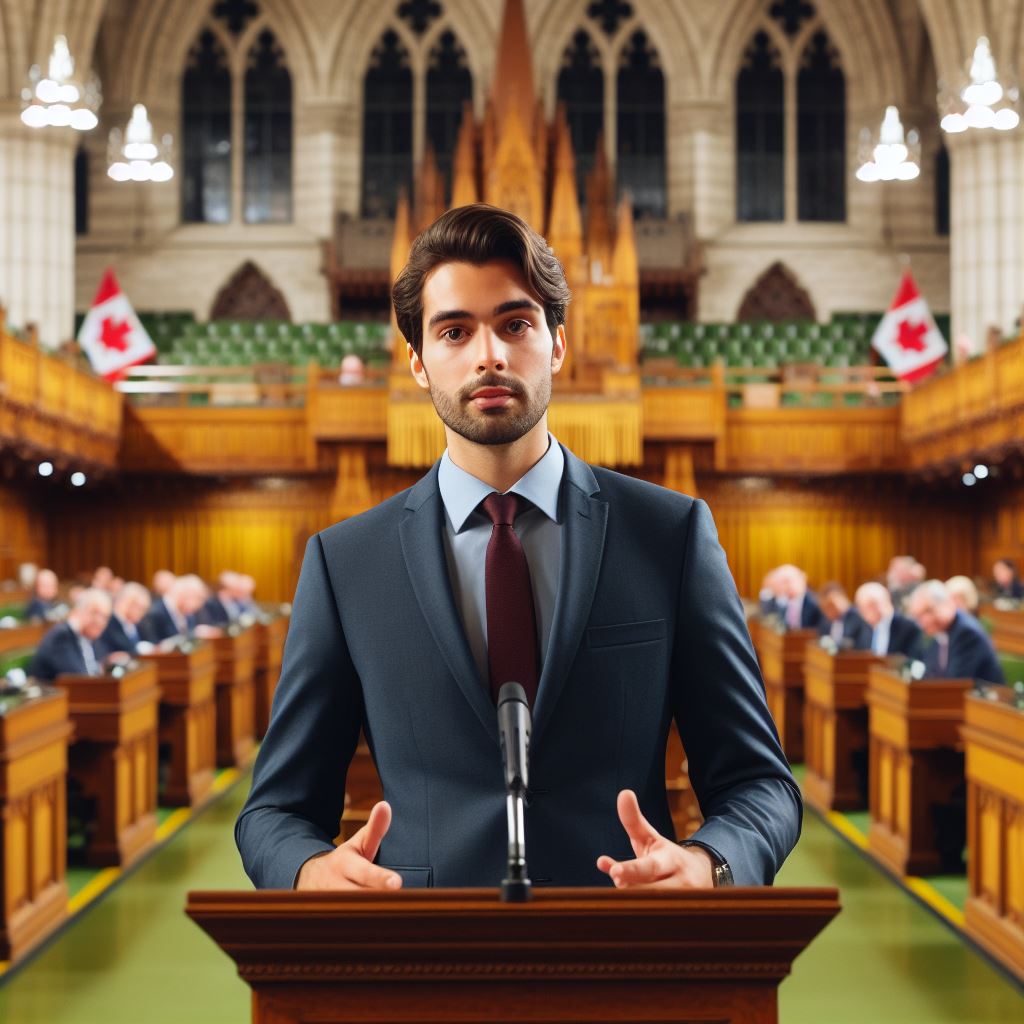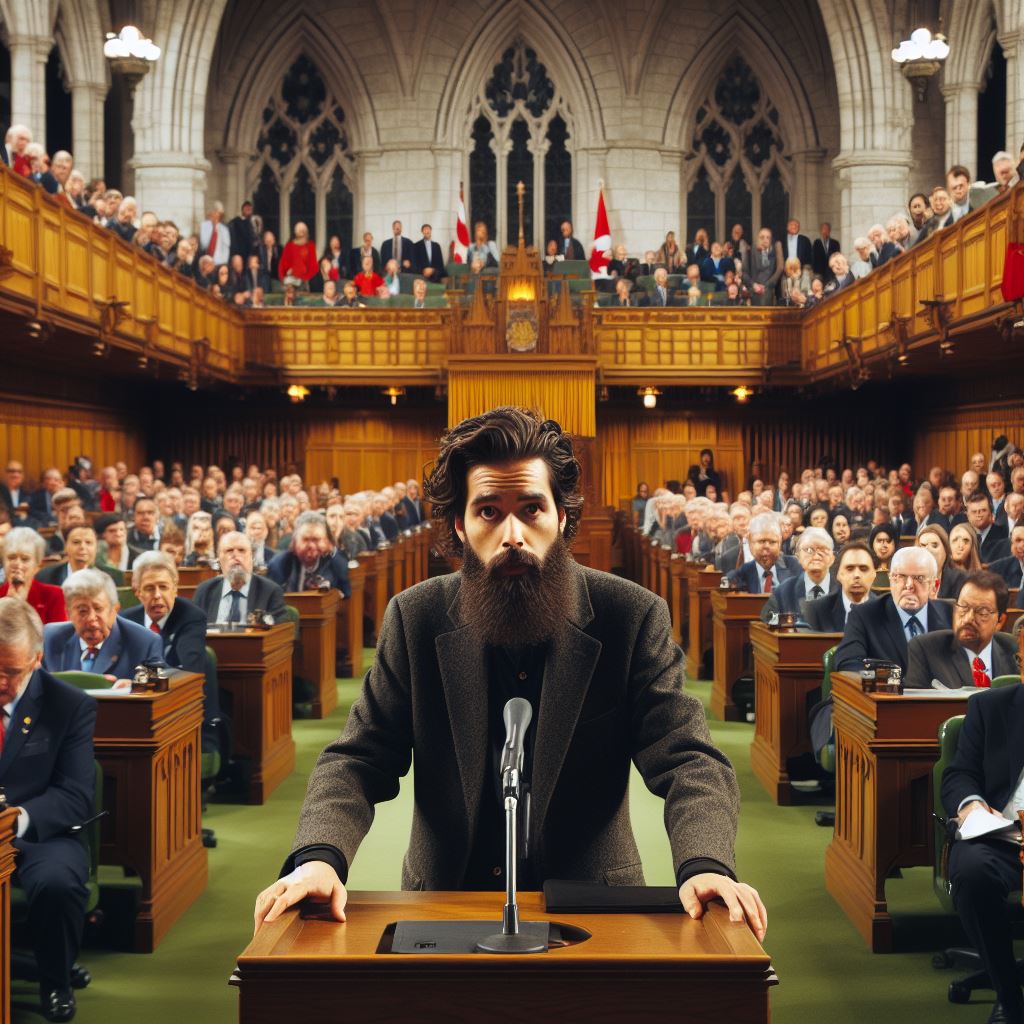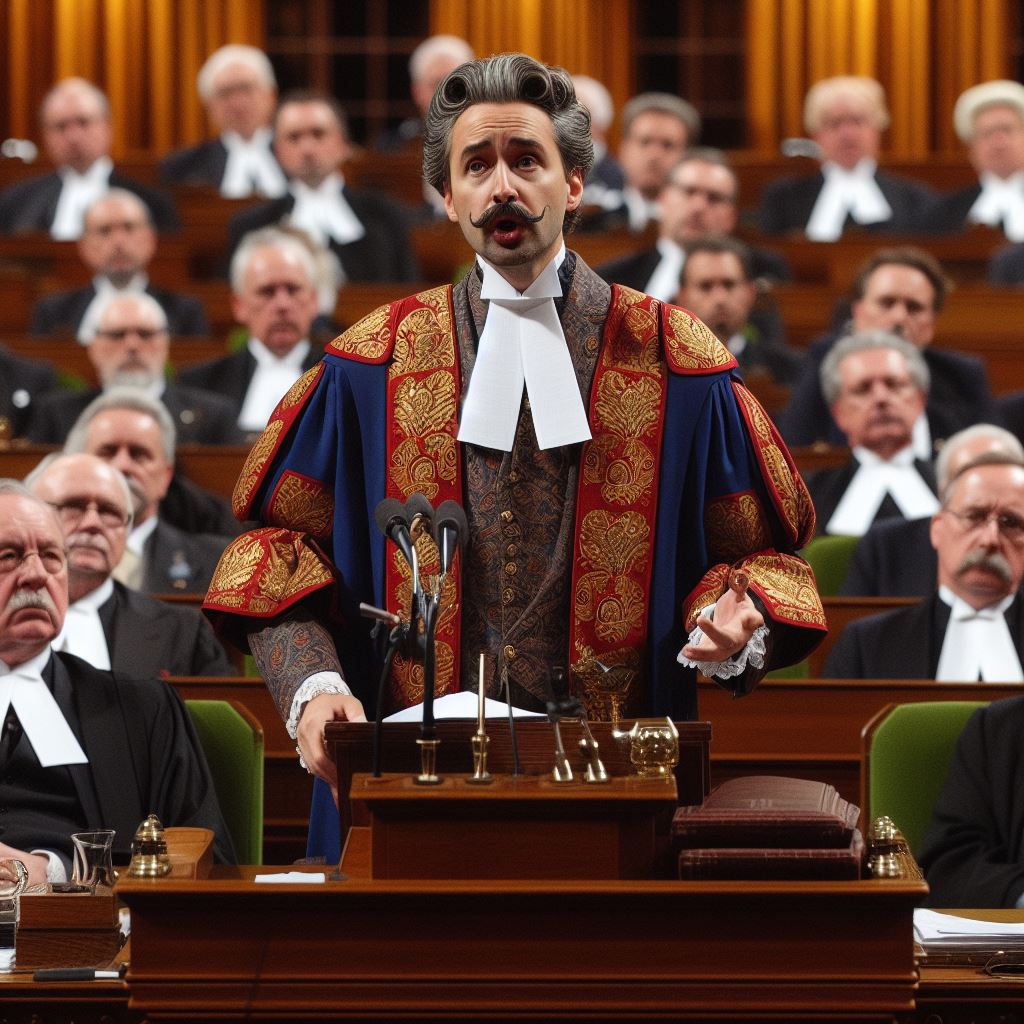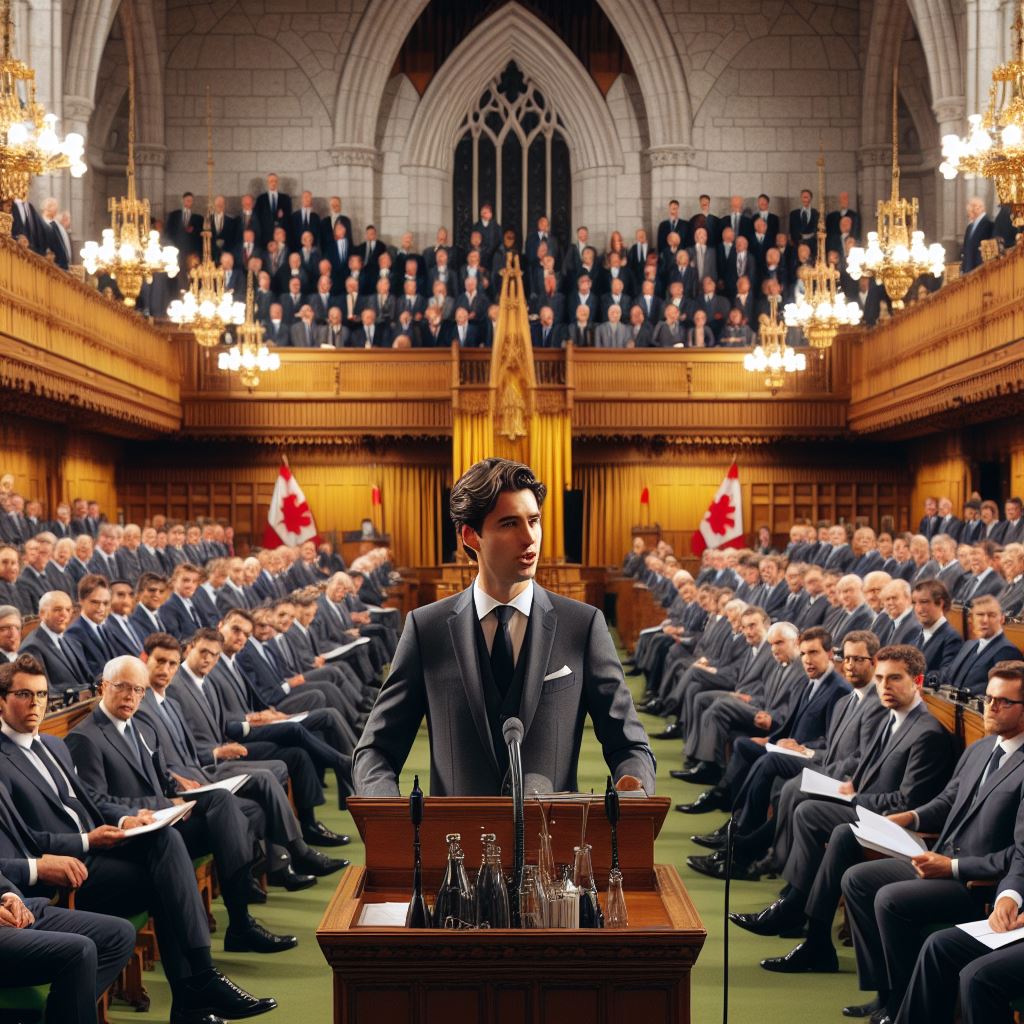Introduction
It is crucial to comprehend the daily routine and obligations of Canadian politicians in order to grasp their significance in society.
The objective of this blog post is to present a detailed overview of their role and responsibilities.
Canadian politicians lead a demanding and multifaceted life, balancing public service and personal commitments.
The day usually commences early in the morning, as they prepare for a day filled with meetings, debates, and decision-making.
The first task is often catching up on current affairs, national and international news, and staying informed about the issues at hand.
They need to be well-versed in various policy matters to make informed decisions that will impact the nation and its citizens.
Shortly after, politicians attend a series of meetings, both within their party and with constituents.
These meetings provide an opportunity to discuss policy initiatives, strategize, and collaborate with other stakeholders.
Outside of the parliamentary setting, politicians frequently engage with their constituents through community events, town hall meetings, and public speaking engagements.
This interaction allows them to understand the needs and aspirations of the people they represent.
A significant portion of a politician’s day is dedicated to addressing public concerns and advocating for their constituents’ rights.
Whether it’s responding to emails, letters, or meeting with constituents in person, connecting with the community is pivotal to effective representation.
As the day winds down, politicians often take some time to reflect, review pending matters, and plan for the future.
They must continuously adapt and stay responsive to the evolving needs of their constituents and the nation as a whole.
In short, understanding the daily life and responsibilities of Canadian politicians is vital for appreciating their significance in shaping the country’s future.
They work tirelessly to represent their constituents, engage in policy-making, and address the concerns of the public.
By gaining insight into their role, we can better appreciate their efforts in building a better Canada.
Overview of a Canadian Politician
Definition and Role of a Canadian Politician
A Canadian politician is an individual who actively participates in the political system of Canada and represents the interests of their constituents.
They are elected officials responsible for making decisions and laws that affect the country.
Different Levels of Government in Canada
Federal Government
- The federal government is responsible for governing the entire country, addressing national issues, and representing Canada internationally.
- It consists of the Prime Minister, Cabinet Ministers, and Members of Parliament.
Provincial Government
- Provincial governments have jurisdiction over provinces and territories.
- They are responsible for areas such as healthcare, education, transportation, and natural resources.
Municipal Government
- Municipal governments govern cities, towns, and municipalities.
- They focus on local matters such as infrastructure, public services, and community development.
The Election Process and How Politicians are Elected
Campaigning
- Politicians participate in campaigns by promoting their platforms, discussing their policies, and engaging with voters.
- They often hold rallies, debates, and public meetings to connect with constituents.
Nominations
- Individuals who wish to become politicians must be nominated by a political party or run as independent candidates.
- Party members vote to select their candidates, while independents can present themselves directly to the voters.
General Elections
- General elections are held at regular intervals to determine the representatives in various levels of government.
- During the election, eligible voters cast their ballots to elect politicians for specific positions.
Voting and Ballots
- Voters mark their preferred candidate on a ballot, either by choosing the candidate’s name or party symbol.
- Secret ballots ensure that each voter’s choice remains confidential.
Counting and Results
- After the voting period ends, the ballots are counted to determine the elected politician.
- Political parties or individuals with the highest number of votes win the respective positions.
In fact, Canadian politicians play a vital role in the country’s political system by representing their constituents’ interests and making decisions at various levels of government.
Through the election process, they are chosen by voters to serve and contribute to the development and governance of Canada.
Read: Navigating Government Policies: Analyst Tips
Morning Routine
As a Canadian politician, my morning routine is essential for setting the tone for the day ahead.
With a packed schedule and numerous responsibilities, I need to make the most of every minute.
The typical morning routine of a Canadian politician
Here’s a glimpse into a typical morning for me:
Unlock Your Career Potential
Visualize a clear path to success with our tailored Career Consulting service. Personalized insights in just 1-3 days.
Get StartedRise and Shine
My alarm goes off at 6 AM sharp. I strive to start my day early to maximize productivity and take advantage of the quiet morning hours.
A good night’s sleep is crucial for me to stay focused and energized throughout the day.
Exercise and Reflect
Before diving into the political world, I dedicate time to my physical and mental well-being.
Whether it’s a brisk jog or a calming yoga session, exercise helps me clear my mind and boost my energy levels.
During this time, I also reflect on my goals and priorities for the day.
Communication and Briefings
One of the most important aspects of a Canadian politician’s morning routine is early communication.
I start by checking my email and voicemail to stay updated on any urgent matters and respond promptly.
Then, I meet with my team for a briefing on the day’s events and key issues.
Reviewing Documents
A significant part of my morning routine involves reviewing documents and reports related to ongoing projects and upcoming meetings.
These documents provide essential background information and help me make informed decisions throughout the day.
I jot down any questions or concerns to discuss later.
Engaging with the Community
Before heading to the office, I make an effort to interact with the community.
This can involve attending local events, meeting constituents, or joining community gatherings.
These interactions help me stay connected with the people I represent and gain valuable insights into their concerns and needs.
Preparing for Public Speaking
Public speaking is a crucial aspect of my role as a Canadian politician.
To ensure my speeches and presentations are impactful, I dedicate time in the morning to rehearse and refine my talking points.
I also go over any visual aids or slides I may be using.
Dressing for Success
Appearances matter in politics, and dressing professionally is vital.
Before leaving for the office, I carefully select my attire, ensuring it aligns with the tone and significance of the day’s events.
Looking polished and presentable helps me project confidence and credibility.
Navigating Morning Traffic
Morning traffic can be a challenge, even for politicians. I plan my commuting route strategically to avoid delays as much as possible.
While on the road, I catch up on news and listen to podcasts or audiobooks related to current affairs.
Arriving at the Office
Once I reach my office, it’s time to hit the ground running. I greet my team and get updates on any new developments that may have emerged since our morning briefing.
From there, I’m ready to face the day’s meetings, events, and responsibilities head-on.
Overall, a Canadian politician’s morning routine involves a carefully orchestrated series of activities aimed at ensuring productivity, preparedness, and strong connections with the community.
By starting the day early and prioritizing essential tasks, I can navigate the fast-paced world of politics effectively.
Read: Politician Salaries: A Canadian Overview
Meetings and Engagements
As a Canadian politician, my daily schedule is packed with various types of meetings and engagements.
These interactions are crucial for me to fulfill my duties and responsibilities as a representative of the people.
Meetings with Constituents
One of the most important aspects of my job is meeting with constituents to listen to their concerns and address the issues they face.
These meetings allow me to understand the needs of the people I represent and work towards finding solutions.
During these meetings, constituents often discuss a wide range of topics, including healthcare, education, infrastructure, and social services.
I actively engage in conversations, actively seeking to understand their perspectives and relay their concerns to the appropriate government departments.
Whether through individual meetings or town hall discussions, these interactions are vital for building trust and maintaining a strong connection with the people I serve.
Meetings with Colleagues, Party Members, and Stakeholders
In addition to meeting with constituents, I also have regular meetings with colleagues, including fellow politicians and members of my political party.
These meetings allow us to discuss policies, strategy, and coordinate our efforts to better serve the public.
Collaboration and teamwork are key in the political arena, and these meetings provide an opportunity for productive discussions and decision-making.
We exchange ideas, deliberate on important matters, and work towards consensus on various issues.
Furthermore, I often meet with stakeholders, such as representatives from industry sectors, advocacy groups, and community organizations.
These engagements help me understand diverse perspectives, gather feedback, and ensure that the decisions I make align with the best interests of the community.
Stakeholder meetings also present an opportunity for me to communicate government policies and initiatives, seek input on potential legislation, and foster partnerships for various community development projects.
Meetings and engagements form a significant part of a Canadian politician’s daily life.
Whether it is meeting with constituents, colleagues, or stakeholders, each interaction plays a crucial role in representing the people’s interests and working towards a better future.
By actively participating in these meetings and engaging in meaningful conversations, I am able to understand the concerns and needs of the community while collaboratively shaping policies and making decisions that benefit the people I serve.
Being accountable and responsive to constituents is at the core of my political journey, and these meetings empower me to make a positive impact and contribute to the betterment of my constituents’ lives and the nation as a whole.
Read: Ethics in Policy Analysis: A Critical Look
Policy and Decision-Making
The involvement of Canadian politicians in policy development
In policy development, Canadian politicians play a significant role by actively engaging in the process.
They contribute to the formulation and implementation of policies that affect various aspects of Canadian society.
Firstly, politicians are involved in policy development through their representation of constituents.
They gather feedback, concerns, and ideas from the public, which helps shape the policies they advocate for.
The decision-making process and how politicians participate
Additionally, politicians participate in policy development by working collaboratively with government officials and experts.
They attend parliamentary committee meetings, where they review proposed policies, analyze their potential impact, and suggest amendments.
Politicians are also responsible for conducting research and consulting subject matter experts to ensure well-informed decision-making.
They seek input from academics, industry professionals, and community leaders to gain a comprehensive understanding of complex issues.
Through these consultations, politicians gather different perspectives and incorporate diverse viewpoints into their decision-making process.
Moreover, the decision-making process involves thorough discussions and deliberations among politicians.
They engage in debates in the House of Commons to voice their opinions and provide rationale for their stance on particular policies.
Through these debates, politicians aim to persuade their colleagues and the general public of the merits of their proposed policies.
The decision-making process also includes compromise and negotiation, as politicians work towards consensus.
They engage in constructive dialogue and seek common ground to ensure that policies are in the best interest of the country.
Furthermore, politicians are accountable to their constituents and actively engage with them throughout the decision-making process.
They hold public consultations, town hall meetings, and engage in direct communication to gather input and feedback.
By involving the public, politicians ensure that policies reflect the needs and aspirations of the Canadian population.
The need for research and consultation before making decisions
Research and consultation are crucial steps before making decisions as they provide a strong evidence-based foundation.
Politicians rely on research findings from think tanks, academic studies, and government reports to make informed decisions.
They also consult with stakeholders, such as advocacy groups and industry representatives, to gain diverse perspectives.
Furthermore, research and consultation help politicians understand the potential outcomes and consequences of their decisions.
By considering various perspectives, politicians can address potential issues and unintended consequences in their policies.
In essence, Canadian politicians are deeply involved in policy development, engaging in research, consultation, and decision-making.
They collaborate with experts, advocate for constituents, and ensure policies align with the needs and aspirations of Canadians.
Their active participation in the entire process helps create well-rounded policies that address the complex challenges of our society.
Read: Policy Analysts and Climate Change Policies

Legislative Responsibilities
The legislative responsibilities of a Canadian politician
In this section, we will delve into the legislative responsibilities of a Canadian politician.
These tasks form an integral part of their role in governing the country and shaping its future.
Reviewing and Passing Bills
One of the key duties of a Canadian politician is to review and pass bills, which are proposed laws that can affect the lives of citizens.
This process involves several important steps:
- Introduction: A bill is introduced in either the House of Commons or the Senate and is assigned a number.
- First Reading: The bill is presented to the respective chamber, and its title and main ideas are read.
- Second Reading: Members of Parliament (MPs) or Senators debate the bill’s principles and objectives.
- Committee Stage: The bill is examined in detail by a committee, where amendments can be proposed and discussed.
- Report Stage: MPs or Senators further scrutinize the bill and suggest modifications.
- Third Reading: The final version of the bill is debated, and a vote is taken.
- Other Chamber: If the bill successfully passes in one chamber, it proceeds to the other for a similar process.
- Royal Assent: After approval from both chambers, the bill is sent to the Governor General to receive royal assent and become law.
This thorough process ensures that bills are carefully evaluated, amended, and debated by elected representatives before they become binding laws.
Representation in the Legislature
Canadian politicians have a vital role in representing their constituents’ interests in the legislature.
This responsibility involves:
- Advocacy: Politicians actively advocate for issues and concerns raised by their constituents.
- Debate: They engage in thoughtful debates on proposed legislation to ensure the interests of their constituents are considered.
- Voting: Politicians cast votes on bills and motions based on the best interests of their constituents.
- Question Period: In the House of Commons, politicians have the opportunity to question the government on matters concerning their constituents.
- Private Members’ Business: MPs can introduce bills that address specific concerns of their constituents.
Through these actions, politicians act as a voice for their constituents, ensuring that their concerns and perspectives are heard and represented in the decision-making processes of the legislature.
In general, a Canadian politician’s legislative responsibilities encompass reviewing and passing bills, while also representing constituents in the legislature.
By carrying out these duties, politicians contribute to the development and implementation of laws that shape the nation and work towards the betterment of their communities.
Public Relations
The importance of public relations for Canadian politicians
Public relations plays a crucial role in the success of Canadian politicians.
It is through effective public relations strategies that politicians are able to communicate their ideas, establish trust with the public, and ultimately gain support for their policies and initiatives.
Media interviews
One of the key components of public relations for Canadian politicians is media interviews.
These interviews provide a platform for politicians to share their views and ideas with the public.
It is important for politicians to effectively communicate their message and engage with the media to ensure that their views are accurately represented.
Press conferences
Press conferences are another important tool in a politician’s public relations arsenal.
These conferences allow politicians to make important announcements, address public concerns, and respond to media inquiries.
It provides an opportunity for politicians to control the narrative and shape public opinion.
Public appearances
Public appearances are also essential for Canadian politicians to connect with the public.
Whether it is attending community events, speaking engagements, or town halls, politicians need to be visible and accessible to the people they represent.
These public appearances allow politicians to directly interact with constituents, listen to their concerns, and demonstrate their commitment to serving the public.
The use of social media platforms to engage with the public
In today’s digital age, the use of social media platforms has become increasingly important for politicians to engage with the public.
Platforms such as Twitter, Facebook, and Instagram provide politicians with an opportunity to directly communicate with constituents, share updates on their work, and address public concerns in real-time.
Social media allows politicians to engage with a wider audience and build an online presence that can help shape public opinion.
In brief, public relations is of utmost importance for Canadian politicians.
It allows politicians to effectively communicate their ideas, establish trust with the public, and gain support for their policies.
Media interviews, press conferences, public appearances, and the use of social media platforms are all essential tools that politicians must utilize to engage with the public and shape public opinion.
With effective public relations strategies, Canadian politicians can successfully connect with the public and ultimately fulfill their role as elected representatives.
Delve into the Subject: Mental Health Support for Police in Canada
Community Engagement
The community engagement activities of Canadian politicians
In order to effectively represent their constituents, Canadian politicians understand the importance of engaging with and connecting to their community.
By actively participating in community events, fundraisers, and public forums, these politicians aim to establish a strong bond with the people they serve.
Community Events
- Attending local festivals, parades, and cultural celebrations allows politicians to interact with residents on a personal level.
- By actively engaging in these events, politicians can gain a better understanding of the community’s values, needs, and concerns.
- Through their presence and participation, politicians show their support for the local community and establish themselves as an approachable figure.
Fundraisers
- Politicians frequently contribute to charity events and fundraising campaigns, demonstrating their commitment to serving the community’s welfare.
- By attending fundraisers, politicians not only raise essential funds but also create opportunities to connect with potential voters.
- Their involvement in fundraising efforts showcases their dedication to social causes and highlights their role as public servants.
Public Forums
- Politicians often organize town hall meetings and public forums to provide a platform for constituents to voice their concerns.
- Participating in these forums enables politicians to listen to the community’s feedback and incorporate their ideas into policy-making.
- These public exchanges foster transparency, accountability, and trust between politicians and their constituents.
Connecting with Constituents
Connecting with constituents is paramount for politicians to effectively represent their needs and concerns.
- Regularly interacting with constituents allows politicians to develop a deep understanding of the local issues affecting the community.
- By establishing a personal connection with their constituents, politicians can gain their trust and build a strong relationship based on mutual respect.
- Through community engagement, politicians can address specific problems faced by their constituents and advocate for necessary changes.
- Engaging with the community also allows politicians to deliver information about government programs, policies, and initiatives.
In a nutshell, community engagement is crucial for Canadian politicians as it helps them stay connected to the people they represent.
By actively participating in community events, fundraisers, and public forums, politicians can foster strong relationships, gain valuable insights, and effectively address the needs and concerns of their constituents.
Challenges and Rewards
Being a Canadian politician is no easy task. It comes with its fair share of challenges and rewards.
Let’s delve into the world of Canadian politics and explore the experiences they face.
Challenges Faced by Canadian Politicians
- Intense Decision Making: Canadian politicians are constantly faced with difficult decisions that can greatly impact society.
- Political Turmoil: The ever-changing political landscape and party dynamics can make it challenging to implement policies.
- Public Image: Politicians are under constant scrutiny and have to maintain a favorable public image.
- Balancing Act: They must balance between their party’s interests, the public’s demands, and their own beliefs.
- Partisan Divide: The sharp political divide can hinder progress and make it difficult to find common ground.
Despite these challenges, Canadian politicians remain resilient and determined to serve their constituents.
Pressure, Criticism, and Public Scrutiny:
One of the greatest challenges for Canadian politicians is dealing with the immense pressure they face:
- Public Expectations: Canadians hold politicians to high standards and expect them to fulfill their promises.
- Media Scrutiny: Politicians face continuous media scrutiny, with every action and statement dissected.
- Personal Attacks: They often become targets of personal attacks, which can take a toll on their mental health.
- Negative Criticism: Constructive criticism is essential for growth, but personal attacks can be demoralizing.
- Political Rivals: Competing against political rivals who try to undermine their credibility can be challenging.
However, despite the pressure and criticism, Canadian politicians believe in their vision and strive to make a positive impact.
Rewards of Making a Positive Impact on Society
While being a Canadian politician may have its challenges, there are numerous rewards that come with the job:
- Making a Difference: Politicians have the power to shape policies and make a lasting impact on society.
- Improving Lives: They have the opportunity to create laws and programs that enhance the lives of Canadians.
- Representation: Politicians act as the voice of their constituents, advocating for their interests and concerns.
- Building Relationships: They can forge strong relationships with individuals and organizations that share their vision.
- Legacy: Canadian politicians work towards leaving a positive legacy, shaping the future for generations to come.
These rewards remind politicians of the importance of their role and the positive change they can bring.
Despite the challenges, pressure, and public scrutiny, Canadian politicians continue to strive towards a better future for their constituents.
It is their dedication to service and the rewards of making a positive impact that keep them motivated.
Conclusion
This blog section shed light on a day in the life of a Canadian politician.
We highlighted the hectic schedule, diverse roles, and critical decision-making they face daily.
Understanding their daily life is crucial as it helps us appreciate the complexities and challenges they endure.
It is essential for citizens to stay informed and involved in politics to ensure a thriving democratic society.
By being engaged, we can hold our politicians accountable and actively participate in shaping the future of our country.
So, let’s stay informed, vote, and actively contribute to the political process for a better Canada.




